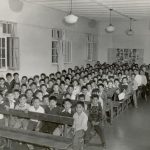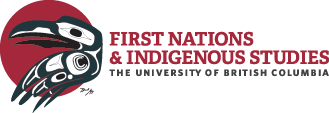Powley Case
…time frame qualifier needed a new definition that differed from the “pre-contact” conditions set for Indian rights in Van der Peet or Sparrow. As Métis peoples are a result of…
The White Paper 1969
…the Indian Act would “enable the Indian people to be free—free to develop Indian cultures in an environment of legal, social and economic equality with other Canadians.” To this end,…
The Residential School System (2009)
…seven generations from now. My ancestors did the same seven generations ago and they tried hard to fight against you because they knew what was happening. They knew what was…
Sixties Scoop
…http://www.fact.on.ca/news/news0212/gm021221a.htm Lyons, Tom. “For more than 20 years, Canada took native children from their homes and placed them with white families. Now a lost generation want its history back.” http://www.cuckoografik.org/trained_tales/orp_pages/news/news5.html…
Métis
…Free People—Otipemisiwak,” Batoche, Saskatchewan, 1870–1930. Ottawa: National Historical Parks and Sites, Canada Parks Service, 1990. Peterson, Jacqueline, and Jennifer Brown, eds. The New Peoples: Being and Becoming Métis in North…

The Residential School System
…were often given numbers, and their days were strictly regimented by timetables. Boys and girls were kept separate, and even siblings rarely interacted, further weakening family ties. Chief Bobby Joseph…
The Residential School System
…were often given numbers, and their days were strictly regimented by timetables. Boys and girls were kept separate, and even siblings rarely interacted, further weakening family ties. Chief Bobby Joseph…
About Sovereignty Performance
…all the news of Western Newfoundland, this is where the public reception changed some. There were a mass amount of comments on the Newspapers website, most being negative and ignorant….
Indian Status
…band, and their registration number. “Status Indians” are wards of the Canadian federal government, a paternalistic legal relationship that illustrates the historical imperial notion that Aboriginal peoples are “children” requiring…
Reserves
…was formed in 1867. Newcomers began occupying the traditional territories of Aboriginal peoples in increasing numbers (some with the financial assistance of their governments). Colonial authorities and some Aboriginal people…

